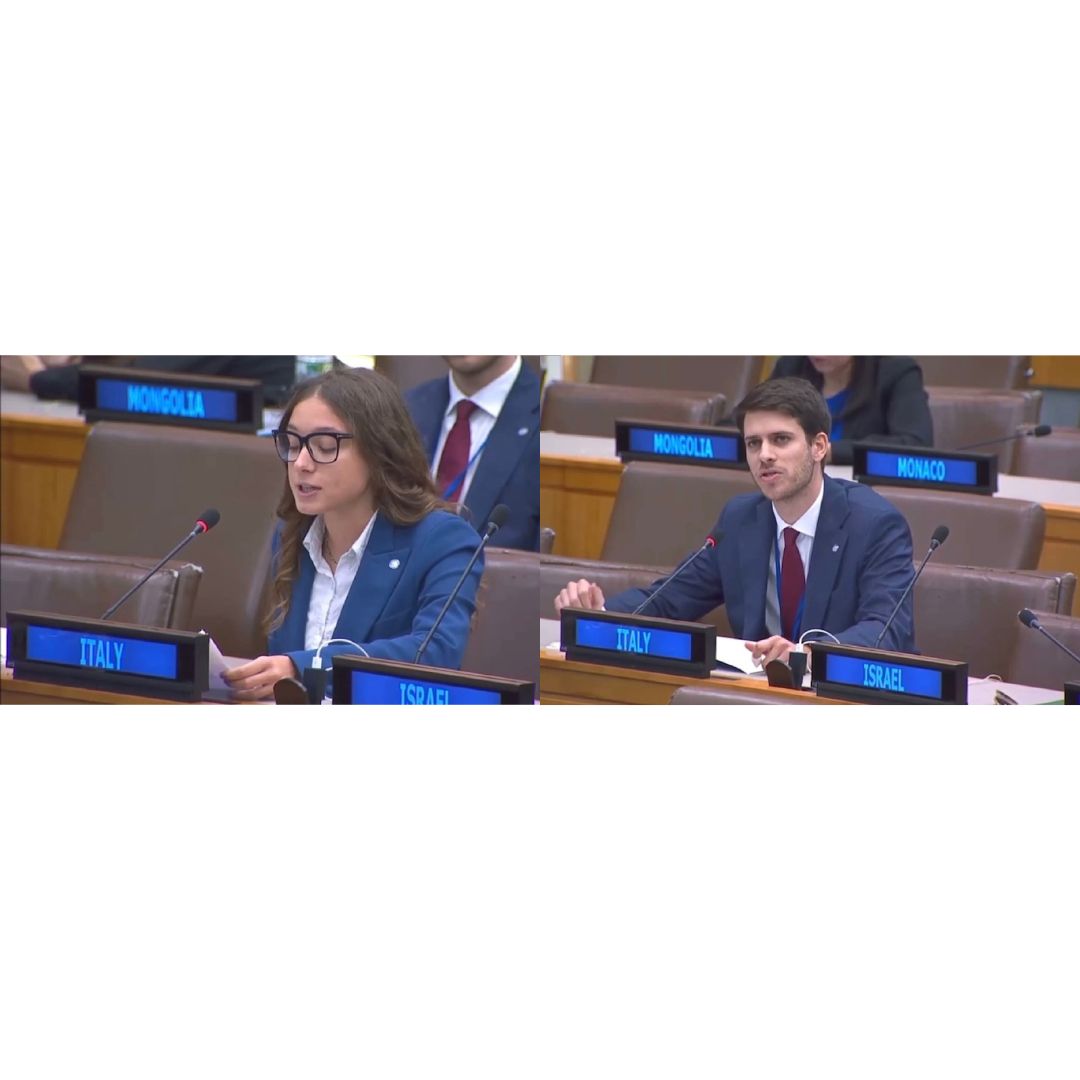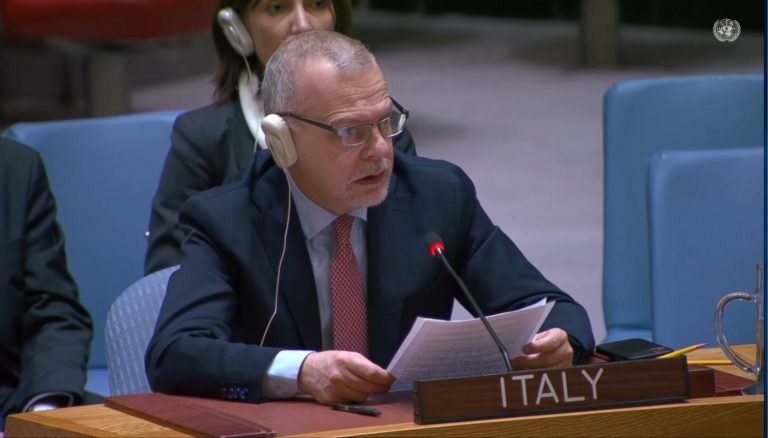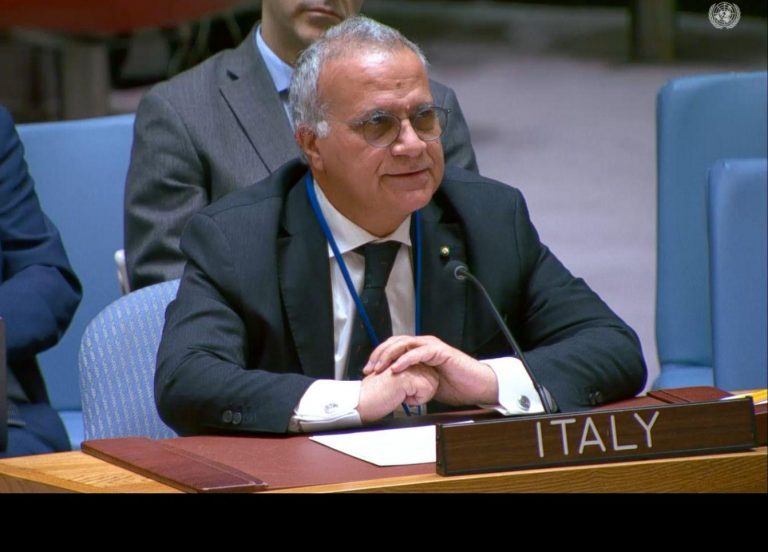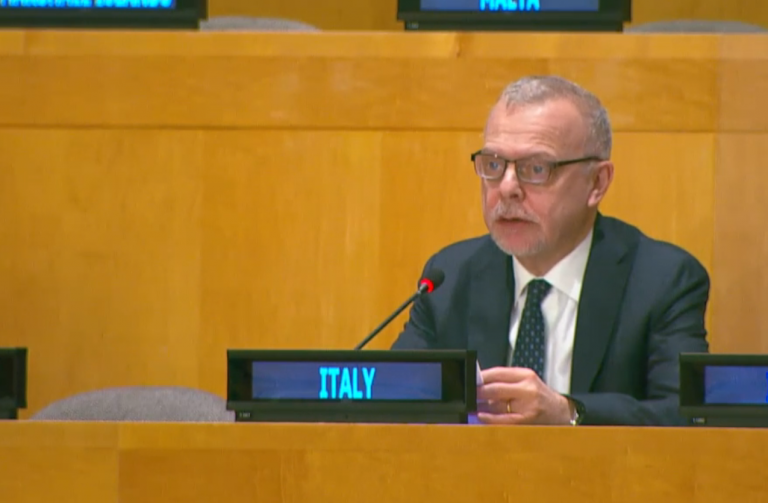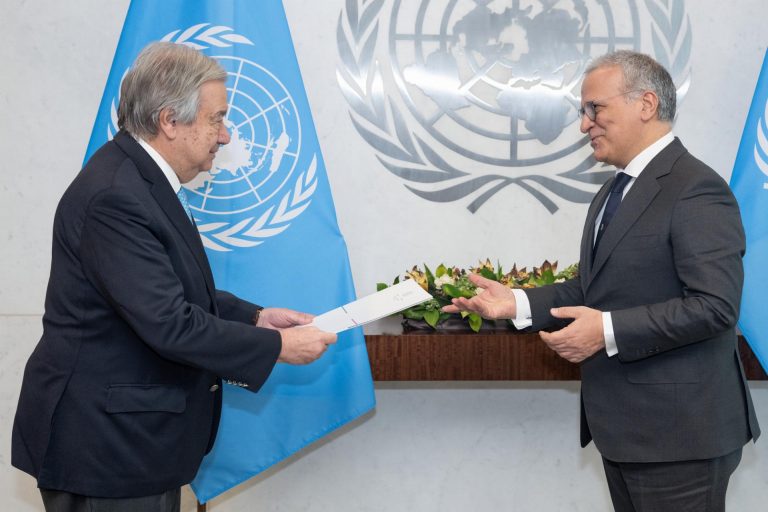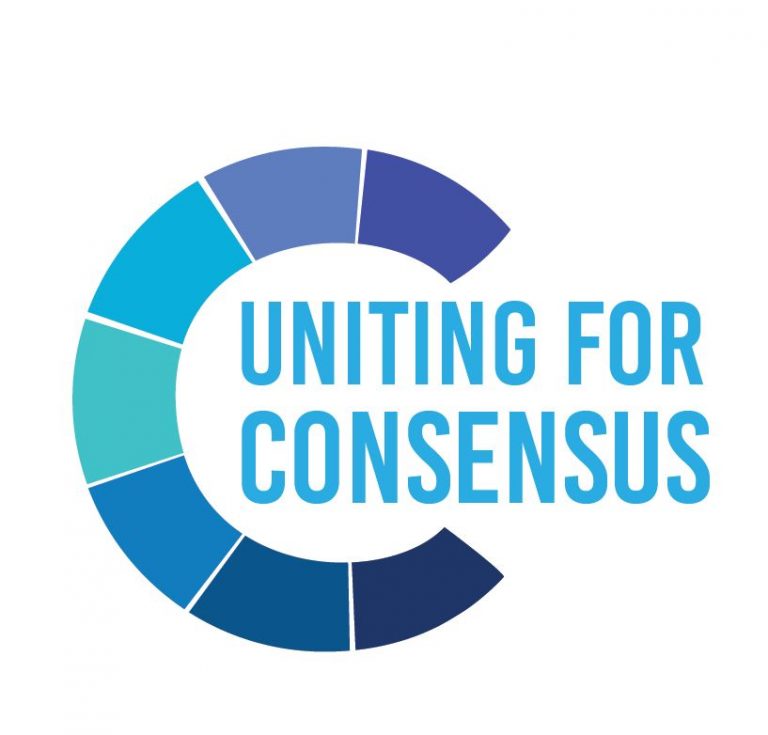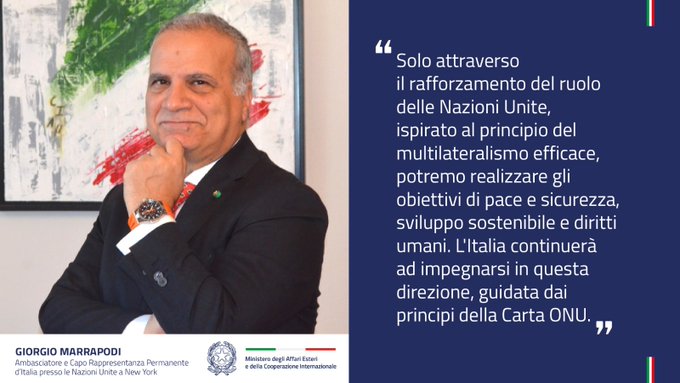Remarks by YD Chiara Gisinti
Thank you Mr. Chair, Distinguished Excellencies and Delegates,
It is a true honor to stand before you today as Youth Delegates of Italy.
As we reflected on the question “what difference can our voices truly make in this forum?” we felt compelled to share our personal journeys, which mirror some of the challenges faced by fellow young people. Growing up, we’ve witnessed many young women being held back solely due to their gender and young people with disabilities not being valued for their full potential; we’ve watched our peers struggle to find fair-paying jobs and affordable housing, while many felt overwhelmed by the widespread indifference towards the triple planetary crisis and disregard of mental health. Then, participating in interactions in these very rooms, we realized that, no matter where we come from, we the youth share similar frustrations; we keep asking why, when our future is at stake, are we sidelined, despite being key contributors to solving the challenges we face?
We demand change and urge States to make Chapter 4 of the Pact for the Future a reality. Youth participation must be systemic, not merely tokenistic, in all fields because every issue is a youth issue. While we appreciate the agreements reached, words must turn into concrete actions which must necessarily include the voices and contributions of youth, with a special attention to the marginalized and underrepresented.
In particular, in a world facing the highest number of conflicts since World War II, one key area where youth contributions are vital is peace and security. Hence, we urge States to implement the Youth, Peace, and Security Agenda and institutionalize National Action Plans. At the heart of this agenda is not just a call for the protection of young people but a recognition of their immense potential as leaders of positive change. Policy-making processes in peace and security cannot be complete without the inputs of those whose futures are most at stake, the youth, and that is why our contributions must be recognised and acted upon.
Most of the countries in this room are positioned at the crossroads of regions deeply affected by the consequences of conflicts and instabilities and, by implementing the YPS Agenda, we can better integrate the voices of young people into national policies, strengthen our peacebuilding efforts, and enhance a culture of inclusion to shape a more peaceful society. In the end, the YPS Agenda is not just a means to enhance peace, it is a pathway to revitalize multilateralism.
___
Remarks by YD Andrea Granata
Dear delegates, in the past days, we heard a lot about how we could better involve the youth in decision-making processes. Still, we firmly believe that, in order to concretely tackle issues in terms of youth participation, we must start dissecting the truthful essence of the category often referred to as “youth” as if it was a univocal, homogenous group. If, on the one hand, young people share generational challenges, we must emphasize and face the still consistent gaps existing between young people, not only across countries, but even locally, from region to region; from metropolitan to rural areas!univocal, homogenous group. If, on the one hand, young people share generational challenges, we must emphasize and face the still consistent gaps existing between young people, not only across countries, but even locally, from region to region; from metropolitan to rural areas!univocal, homogenous group. If, on the one hand, young people share generational challenges, we must emphasize and face the still consistent gaps existing between young people, not only across countries, but even locally, from region to region; from metropolitan to rural areas!
As Youth Delegates of Italy, we are convinced that a pure youth empowerment can only happen by ensuring inclusive opportunities; and the pivotal measure to fight marginalization and foster social inclusion is investing in qualitative education.
As we welcome the Pact of the Future’s recommendations on the issue, we propose the following areas of action.
First, promote non-formal education, to put young people on the ground, revitalize our sense of curiosity and actively drive positive change. As daughters and sons of the digital era, we require innovative tools to embrace digital technologies to enhance our skills, not to substitute them.
Second, develop inclusive and structural processes of climate awareness, to turn systematic anxiety into deep conscience. The shift of mentality we need cannot be achieved if we are not put in the conditions to take the future in our hands, by stimulating vocational training and investing in youth-led social and sustainable entrepreneurship.
Third, embrace integrated and intergenerational approaches to decision-making, to tear down, once for all, the stereotypical misbelief that including young people in decision-making would only benefit youth and to finally revitalize trust in institutions.
Dear colleagues, education for peace and viceversa is the true pillar to make sure we leave no one behind, and even more, that will effectively, confidently and inclusively guide us all ahead.
Thank you.







